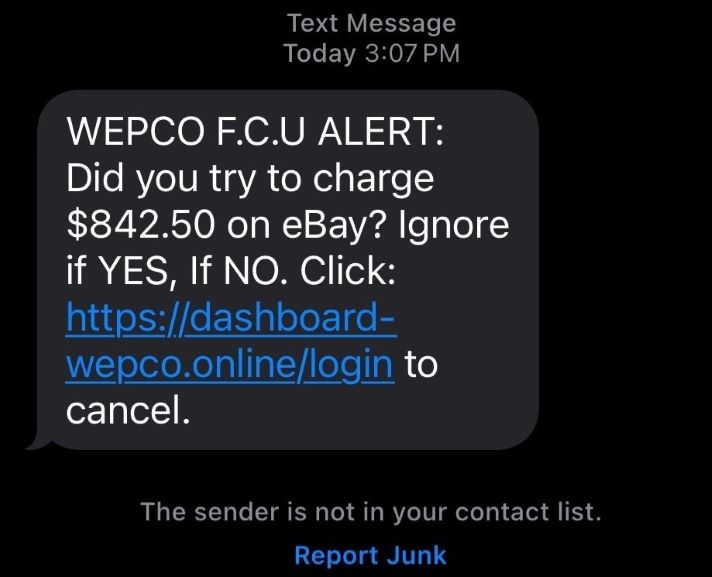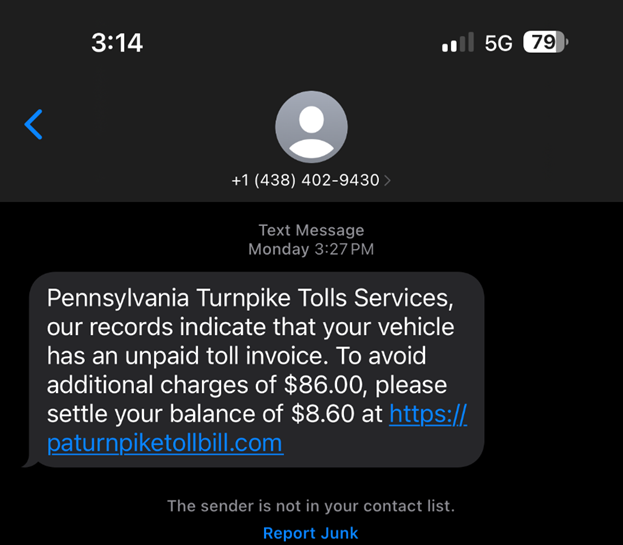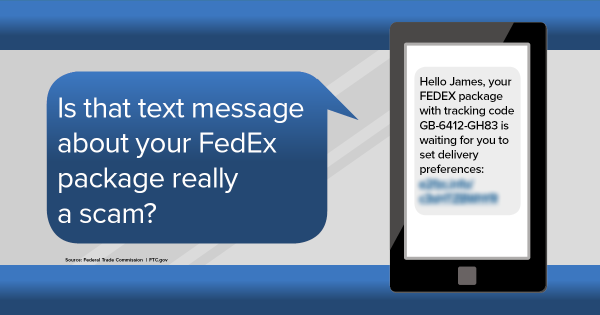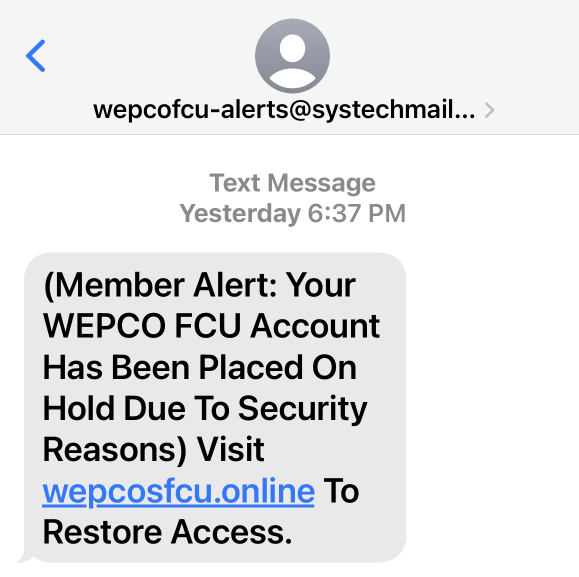Text Message Scams
Fake Purchase Alert
There are text messages being sent that appear to come from us, asking you to verify a purchase. These messages are fake, so don't click the link and report them as spam!

Fake Toll Bills
Be on the lookout for text messages from a state claiming you owe a bill for a toll road. They'll give you a link that looks official, but it's a fake website designed to steal your card information:

About the Scam

Have you ever received a text on your smartphone about a bill you haven’t paid, a purchase needing shipped, or an account needing unlocked? The text may come from a company you recognize or deal with, and it will include a link to solve the issue. However, these are fake text messages sent by fraudsters trying to steal your information.
These texts seem to come from a real company and will be appealing or urgent, trying to convince you to tap on the link in the message:
- Promise you a free gift card or coupon
- Offer an amazing deal on your cell phone or other service you use
- Claim to have found unusual activity on your debit card and ask you to confirm it, or your card will be shut down
- Notify you of a shipping delay and need your information to confirm delivery
Below is a fake text message that actually went out and pretended to be WEPCO! Notice that the link looks like it comes from us, but it does not go to our website. Fraudsters send thousands of these texts hoping to get a few people to tap the link. Once tapped, your phone goes to a website where either it will ask for your password or personal information or install a virus on your device.

Protecting Yourself
When dealing with text messages, follow these guidelines:
- If you didn’t expect the text or it doesn’t make sense, don’t respond to it. Just delete it.
- If asked to verify your personal or account information, do not reply to the text itself. Verify with the company through an official phone number or email.
- Add your phone number to Do Not Call lists or spam reporting services. They can reduce the number of fake texts that reach your phone.
- Report and block these texts as spam on your phone.
- Forward fake texts to code 7726 (“SPAM”). Phone carriers can use these texts to identify and block the senders.
- Keep your phone’s system up-to-date. Apple and Android regularly release updates to keep your phone secure.
- Check for other services that can help through your phone carrier or app store. Visit the CTIA website (opens in a new window) for more details.
If You Become a Victim
- If you gave out account information, contact your bank or credit union at once to limit your losses.
- File a complaint with the local police, FCC, and FTC.
- Notify the company that the text seemingly came from. The company may send an alert out to others about the scam.
- Run scans of your device to ensure there are no viruses.
- Monitor your accounts for unusual activity.
For more information about this scam, which is called "Smishing," watch this video from the U.S. Postal Inspection Service:
